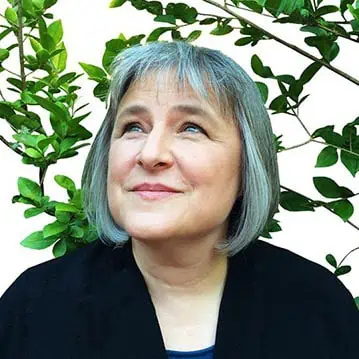How marijuana impacts the brain and helps us with reactivity
When I was 12 years old, I tried smoking marijuana for the first time. It was sunset in the winter in interior Alaska, where the colors of the sun going down are dusty pink and orange. I stood for a moment in front of a birch trunk, seeing the gold and white and apricot and pink of the peeling bark against the sky. It was perhaps the moment of greatest beauty I have ever experienced. And that initial perception of exquisite nuance never came back again, no matter how often I tried to recapture it.
I kept smoking almost daily after that, until I was 15 years old and my mother and I agreed that I would go live abroad for a year. But the real reason that I was using marijuana was not in order to recapture beauty, but rather because it made enough space for me to survive in the same household with my mother, who was taken into the depths of her own terror and fury and longing to make things safe that came out as control, simply by having a daughter.
Before I discovered the non-reactive peace that came with the drug, we would scream at each other for hours every day from the time I was 8 until I was 12. My hair. My clothes. My reading. My inability to make friends. My longing to spend time with friends. Chores. My body. My reluctance to move. My homework. My test scores. People would tell me to be nice to her. Every morning I would promise myself that today I wouldn’t react. Today I wouldn’t scream at her. Today I would keep my patience. Every night I would regret my reactivity, and wonder why I was such a horrible child. I promised myself that I would never have children.
Once I started smoking marijuana, I could keep my promises to myself – I could be non-reactive. Her words didn’t hurt so much, so I could be the person I wanted to be. I stopped smoking the year I was away from home, and I got used to not having to, and when I came home again it was more possible to live with her and not be altered, but I have often thought that if I had to live with her long-term again (she’s been dead now for years), I would start smoking again.
And so I have wondered, how does cannabis do this for us? How does it create a breathing space for survival in an unbearable world?
What I have discovered is that It can help us in this way because we have an endocannabinoid system (like our nervous system, or our lymphatic system or our immune system). This system uses our bodies’ own cannabis-like neurotransmitters to create homeostasis – our internal balance. It also decreases the remembrance of difficult events, and helps with the anxiety of being in a difficult situation and not being able to run away, and gives us access to the neurochemicals of play in a play-free world.
And just as I discovered as a 12-year old, it decouples our prefrontal cortex from our limbic system. In the long run, this stops teen brains from developing, and in adult brains, it increases our rate of brain aging. It also decreases memory and cognitive capacity. None of these things are particularly good for us, but we may trade away our brain health willingly for management of unbearable anxiety, peace and survival.
Our endocannabinoid system is the most recent body system to be discovered, mapped and researched. We are still learning how it affects the health of our skin, our sleep, our appetite, our hormonal balances, our management of memory and our ability to play.
You can learn more about what cannabis does for us, how we might be self-medicating, and what the leverage points might be for self-compassion, empathy processes, and healing by watching my exploration of the neuroscience of cannabis. If you are looking for more broad understandings of how substances are implicated, and support us in various ways to be with trauma, my learning collection about addiction might be helpful.







